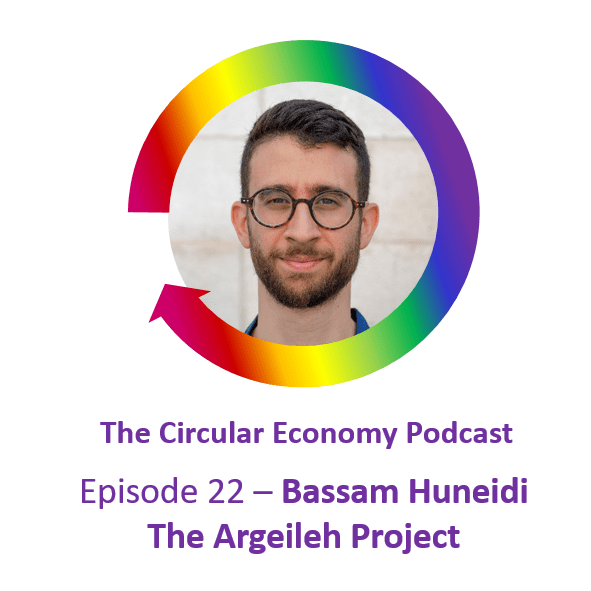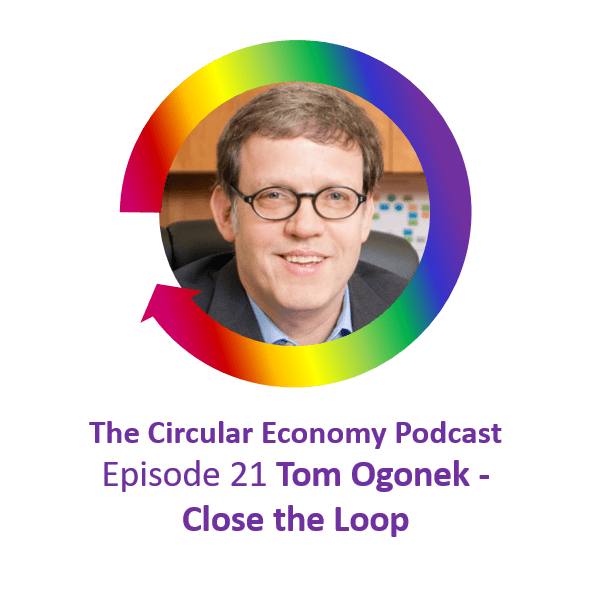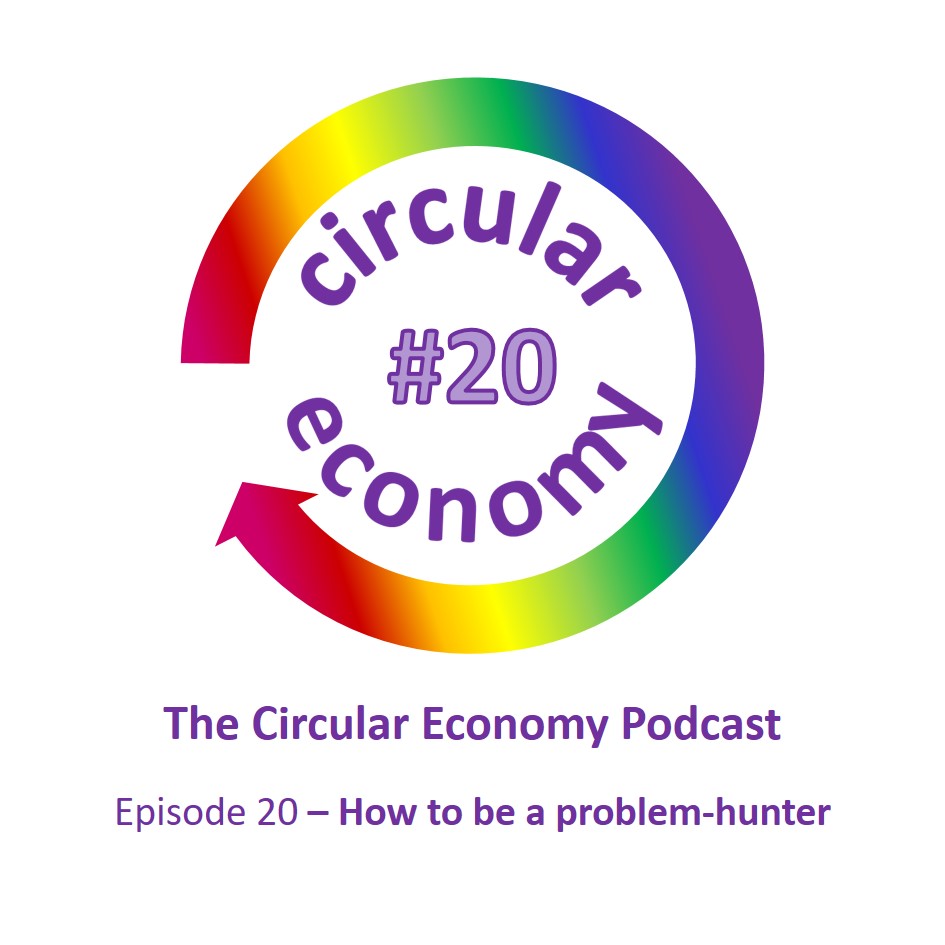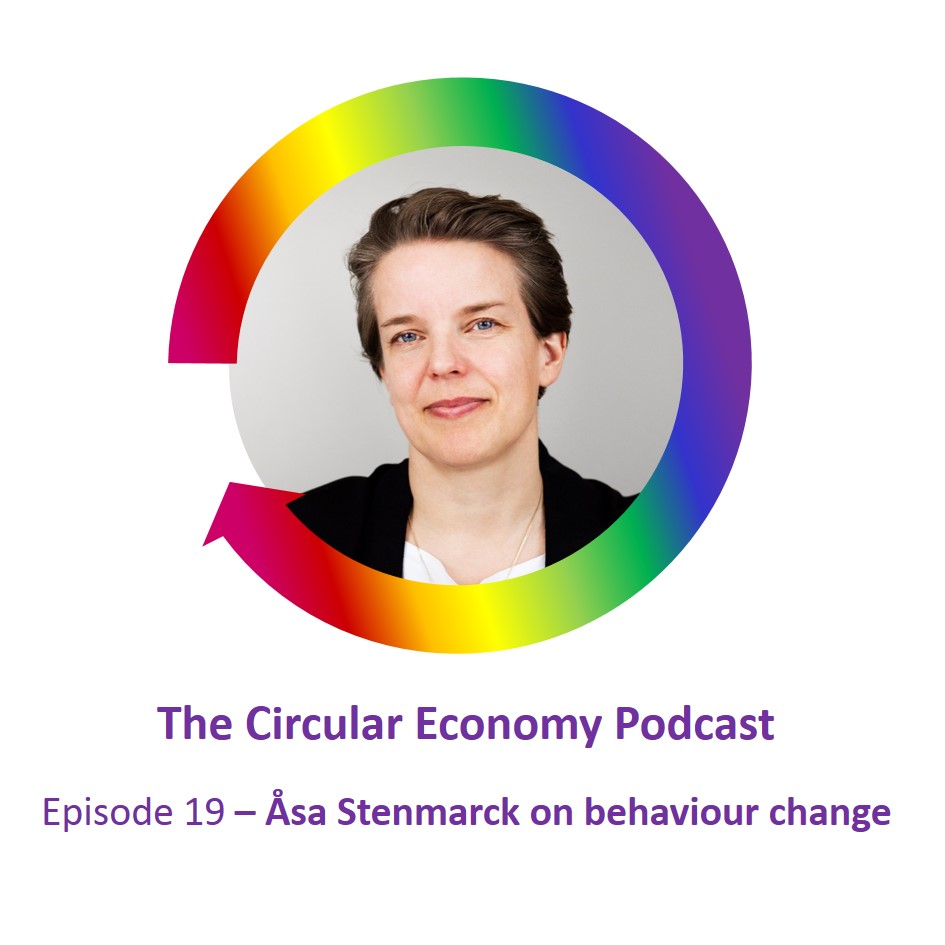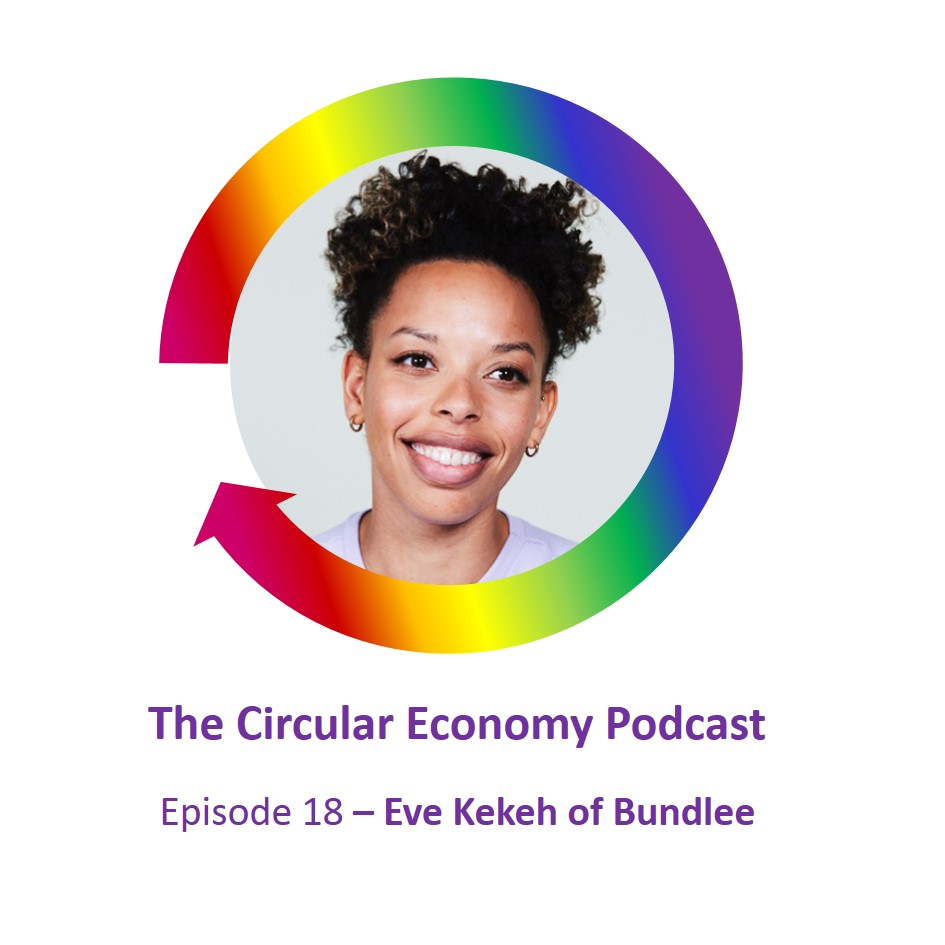Podcast: Play in new window | Download
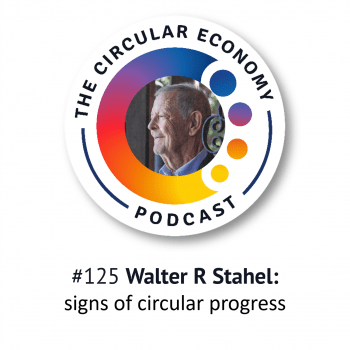
Professor Walter R Stahel is widely acknowledged as one of the founding fathers of what is now known as the circular economy.
Catherine Weetman says: I first heard Walter speak at an circular economy event in London, back in 2015, and then had the opportunity to work with him as on the SFB for the Circular Economy Alliance. We wrote a paper together on Intelligent Decentralisation, one of the concepts he introduced in his latest book, The Circular Economy: A Users Guide.
Walter describes himself as An architect by training, an industrial analyst by compassion, and a researcher in risk management to earn an exciting living.
These days, his is a keynote speaker and author on sustainability and circular economy and says he has always been interested in what he does not know.
Walter is the founder and director of the Product-Life Institute in Switzerland, founded in 1982 and now Europe’s oldest sustainability-based consultancy and think tank.
With over 500 publications since 1975, he holds a number of visiting professor and lecturing roles, and a long list of awards and advisory roles, including being a Full Member of the Club of Rome.
Walter sees the circular economy as a ‘changer of the globalised industrial game’, creating societal resilience and providing protection against disruptive events. Walter created the idea of the performance economy, as a way of extending the concepts of the circular economy, and says that many of the opportunities are either untapped, or criticised by those who benefit from the Rentier Economy. If you want to know more about the problems of the rentier economy, have a listen back to ep 119 with Ken Webster.
Walter summarised his main concepts in Nature magazine a while ago, and I’ve included a link in the shownotes.
As Walter has been pioneering these concepts for almost 50 years, I was keen to hear how he views things now, where he sees signs of progress, and how we can help accelerate the shift towards circular strategies.
We talk about the business case for the circular economy, and Walter highlights some of the aspects that are often missed, especially for the future value of materials. We discuss the opportunities offered by platforms, digital twins and passports for products and materials, and why we need better ways to assess the remaining life of expensive products and components.
We discuss the need to shift from a mindset of owning to using, and the need to change how we frame things for customers and businesses. Walter describes how we might rethink designs to minimise risks and liabilities, and how caring for our things opens up lots of interesting career opportunities, especially for young people.
International speaker, author and strategic advisor, Catherine Weetman helps people discover why circular, regenerative and fair solutions are better for people, planet – and prosperity.
Catherine’s award-winning book: A Circular Economy Handbook: How to Build a More Resilient, Competitive and Sustainable Business includes lots of practical examples and tips on getting started.
Stay in touch for free insights and updates…
Read on for more on our guest and links to the people, organisations and other resources we mention.
Don’t forget, you can subscribe to the podcast series on iTunes, Google Podcasts, PlayerFM, Spotify, TuneIn, or search for “circular economy” in your favourite podcast app. Stay in touch to get free insights and updates, direct to your inbox…
You can also use our interactive, searchable podcast index to find episodes by sector, by region or by circular strategy. Plus, there is now a regular Circular Economy Podcast newsletter, so you get the latest episode show notes and links delivered to your inbox on Sunday morning, each fortnight. The newsletter includes a link to the episode page on our website, with an audio player. You can subscribe by clicking this link to update your preferences.
Links we mention in the episode:
Catherine’s work:
- Circular Economy Podcast on LinkedIn: linkedin.com/showcase/circular-economy-podcast/
- Circular Economy Podcast website: circulareconomypodcast.com
- Catherine Weetman on LinkedIn: https://www.linkedin.com/in/catherine-weetman-9419107/
- A Circular Economy Handbook: How to Build a More Resilient, Competitive and Sustainable Business – buy from any good bookseller, or direct from the publisher Kogan Page, which ships worldwide (free shipping to UK and US) https://www.koganpage.com/CircEcon2
- Interactive podcast index https://www.rethinkglobal.info/circular-economy-podcast-index/
- Rethink Global www.rethinkglobal.info
- Sign up to get the podcast player and shownotes for each new episode emailed to your inbox
Links for our guest:
- Walter R Stahel on LinkedIn https://www.linkedin.com/in/walter-r-stahel-68b87893/
- Walter’s website http://www.product-life.org/ (as Walter explained, this is mainly archive material, and Walter mainly posts on LinkedIn these days)
- Circular economy: A new relationship with our goods and materials would save resources and energy and create local jobs, explains Walter R. Stahel. Nature (24 Mar 2016), Volume 531, p435. Available from: http://www.nature.com/polopoly_fs/1.19594!/menu/main/topColumns/topLeftColumn/pdf/531435a.pdf
Books, people and organisations we mentioned
- Burckhardt Compression – operations and maintenance for a clients full compressor fleet, independently of manufacturer https://www.burckhardtcompression.com/de/home-2/,
- Andrew J. Hagen and team’s research paper, The license to mine: Making resource wealth work for those who need it most – “In this concept paper, we will address several critical questions: how can we enhance smart use of precious resources, support environmental sustainability and assist the developing world in their growth process? We put forward a policy framework that can potentially address these three questions and in addition could represent a critical step towards a circular economy eliminating the need for a post-resource discussion.” https://www.sciencedirect.com/science/article/abs/pii/S0301420717305445
- Gordon Battelle, who pioneered value recovery from tin mine tailings in the early 1900s, and who believed that profit should be used for social benefits https://en.wikipedia.org/wiki/Gordon_Battelle
- Episode 67 Megan O’Connor Of Nth Cycle – a big leap forward for metal & mineral recovery. Megan O’Connor of Nth Cycle evolved wastewater treatment technology to create a more sustainable, efficient way of extracting valuable metals from e-waste and mining waste https://www.rethinkglobal.info/episode-67-megan-oconnor-of-nth-cycle/
- 122 Iain McKechnie: steps to a services-led strategy. Iain McKechnie of Advanced Services Group helps clients develop services-led strategies, improving circularity and outcomes for businesses and their customers. https://www.rethinkglobal.info/122-iain-mckechnie-steps-to-a-services-led-strategy/
- The De Haviland Comet aircraft disaster https://en.wikipedia.org/wiki/De_Havilland_Comet
- Intelligent Decentralisation – the article Walter and Catherine wrote for the Circular Economy Alliance – see pages 9-18 https://circulareconomyalliance.com/strategic-foresight-board/strategic-foresight-board-report-2023/
- Clayton Christensen – The Innovator’s Dilemma https://claytonchristensen.com/books/the-innovators-dilemma/
Guest bio
Walter R. Stahel, member of the Strategic Foresight Board of circulareconomyalliance.com
Walter R. Stahel – Wikipedia
Walter R. Stahel is the former Head of Risk Management at the Geneva Association (Switzerland), a respected business advisor, and the founder and director of the Product-Life Institute (Geneva, Switzerland) Europe’s oldest sustainability-based consultancy and think tank founded 1982. Stahel’s pioneering research and collaborative work in the field of sustainability stretch back several decades – firmly establishing him as one of the subject’s founders.
Currently, he is visiting professor at the Faculty of Engineering and Physical Sciences at the University of Surrey (UK) and was guest lecturer at Université de Montréal and the graduate department of Tohoku University (Japan), among many other. An alumnus of ETH, the Swiss Federal Institute of Technology (Zurich, Switzerland), Stahel is the author of several prize-winning academic papers and pioneering books including The Limits to Certainty (1989/1993), written with Orio Giarini and published in six languages, The Performance Economy (2010) and The Circular Economy, a user’s guide (2019), translated into Italian and several other languages.
HONOURS
- 2005, appointed as a Visiting Professor at the Faculty of Engineering and Physical Sciences of the University of Surrey, Guildford, for the period 1 September 2005 to 31 August 2008. renewed in 2008, 2011, 2014, 2017 and 2020 for another three-year term.
- 2013, awarded an honorary degree of Doctor of the University by the University of Surrey, Guildford, Great-Britain.
- 2014, nominated as a finalist of the Fortune Awards for Circular Economy Leadership 2015, at the WEF 2015 Davos.
- 2015, elected Full Member of the Club of Rome.
- 2016, awarded an honorary degree of Doctor of the University by the Université de Montréal, Canada, and appointed Visiting Professor at l’Institut EDDEC à Montréal.
- 2020, awarded the Thornton Medal by the IOM3 London.
- 2020 appointed Senior Research Fellow at the Circular Economy Research Centre of Ecole des Ponts Business School.
- 2021 appointed member of the Scientific Foresight Board of the circulareconomyalliance.com
- membre honoraire de l’Institut Fredrik R. Bull, Les-Clayes-sous-Bois.
Over 500 publications since 1975.
If you have two minutes, read my COMMENT published in Nature, 2016, a three page synthesis: http://www.nature.com/polopoly_fs/1.19594!/menu/main/topColumns/topLeftColumn/pdf/531435a.pdf
Playlist: getting started with the circular economy…
Want to know more about the what the circular economy really is, and how it can help your business? Here’s a playlist to help you get to grips with the concept, how it creates value, and the common myths (spoiler alert – it’s much more than recycling!)
- #1 What is the circular economy: A quick intro to explain what the circular economy is and why it’s important. We explore how it helps create better products and services, and at the same time helps to make a better world. I break it down into my 5 circular economy components, helping you think about each part of your business.
- #2 The linear economy and your risk checklist: We dig a bit deeper into the way we do business now, the linear economy, and why that’s creating problems for business, society and our living planet. Also, we’ll look at the risks that emerge from those big-picture issues, and how they might affect your organisation.
- #90 Does circular mean it’s sustainable? Catherine Weetman is worried that companies are using circular economy solutions to grow their business (and their footprints).
- #101 Circular is better for people, planet and profit! How three simple strategies can help you get started with circular and regenerative solutions that are better for people, planet and profit.
- #120 Priorities are changing: people find life is better when we care for and share things – circular economy strategies make that better for business, too.
And here’s Catherine’s guide: What is the circular economy?
Want to dig deeper?
Why not buy Catherine’s award-winning book, A Circular Economy Handbook: How to Build a More Resilient, Competitive and Sustainable Business. This comprehensive guide uses a bottom-up, practical approach, and includes hundreds of real examples from around the world, to help you really ‘get’ the circular economy. Even better, you’ll be inspired with ideas to make your own business more competitive, resilient and sustainable.
Please let us know what you think of the podcast – and we’d love it if you could leave us a review on iTunes, or wherever you find your podcasts. Or send us an email…
Please let us know what you think of the podcast – and we’d love it if you could leave us a review on iTunes, or wherever you find your podcasts. Or send us an email…
Podcast music
Thanks to Belinda O’Hooley and Heidi Tidow, otherwise known as the brilliant, inventive and generous folk duo, O’Hooley & Tidow for allowing me to use the instrumentals from the live version of Summat’s Brewin’ as music for the podcast. You can find the whole track (inspired by the Copper Family song “Oh Good Ale”) on their album, also called Summat’s Brewin’. Or, follow them on Twitter.
